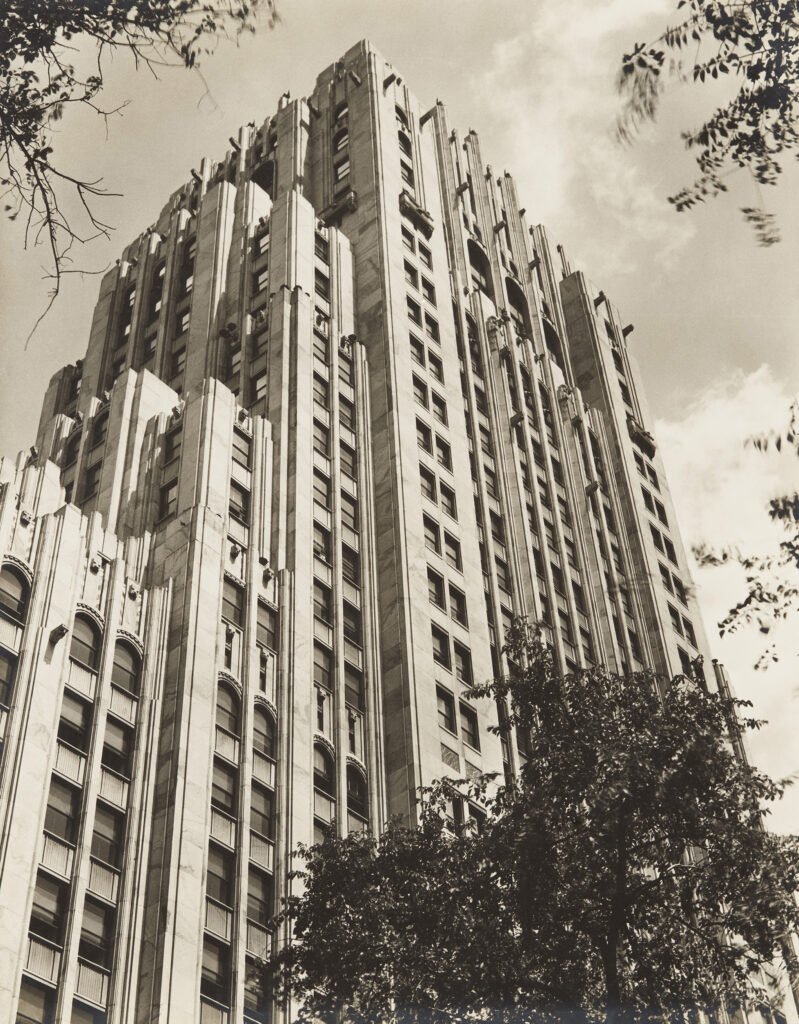Focke Museum | Bremen
9. November 2022 - 26. Februar 2023
Eine jüdische Fotografenfamilie zwischen Deutschland und Amerika
© Julius Frank/Focke-Museum
Verdrängt und vergessen – die Geschichte des Ateliers Frank reiht sich ein in das Schicksal jüdischer Fotografen und Fotografinnen, die nach der Machtübernahme der Nationalsozialisten Deutschland verlassen und sich im Exil eine neue Existenz aufbauen mussten.
Über drei Generationen hinweg betrieb die Familie ein Fotogeschäft in Lilienthal. 1872 von Julius Frank (senior) gegründet, übernahm es zunächst sein Sohn Henry, der ein überregional bekannter, vielfach ausgezeichneter Berufsfotograf wurde. Seine künstlerischen Landschafts- und Porträtaufnahmen mit den durch die Künstlerkolonie Worpswede populär gewordenen Motiven aus dem Teufelsmoor vertrieb er erfolgreich im eigenen Verlag als großformatige Abzüge und Postkarten und gab sie für zahlreiche Publikationen frei. Sein Sohn Julius Frank (junior) knüpfte ab 1931 an die Erfolge an, bis ihn die politische, soziale und wirtschaftliche Ausgrenzung und Verfolgung durch die Nationalsozialisten zum Verkauf weit unter Wert zwangen.
1936 wanderte er in die USA aus, um sein Leben zu retten. In Detroit, Kalamazoo und später in Los Angeles gelang es Julius Frank, erfolgreich Fuß zu fassen. Bis zu seinem frühen Tod 1959 war er unter anderem zehn Jahre lang engster Mitarbeiter von Julius Shulman, dem bedeutendsten amerikanischen Architekturfotografen der Nachkriegsmoderne.
Die Ausstellung zeigt die teils preisgekrönten Originalabzüge der Frank-Fotografen und zeichnet den schweren Weg Julius Franks in die USA und seinen beruflichen Neuanfang nach.
Refoulé et oublié - l'histoire de l'atelier Frank s'inscrit dans le destin des photographes juifs qui ont dû quitter l'Allemagne après l'arrivée au pouvoir des nationaux-socialistes et se construire une nouvelle existence en exil.
Pendant trois générations, la famille a tenu un magasin de photographie à Lilienthal. Fondée en 1872 par Julius Frank (senior), elle a d'abord été reprise par son fils Henry, qui est devenu un photographe professionnel connu dans toute la région et récompensé par de nombreux prix. Il vendit avec succès ses photos artistiques de paysages et de portraits, avec des motifs du Teufelsmoor rendus populaires par la colonie d'artistes de Worpswede, sous forme de tirages grand format et de cartes postales dans sa propre maison d'édition et les fit publier dans de nombreux ouvrages. Son fils Julius Frank (junior) renoua avec le succès à partir de 1931, jusqu'à ce que l'exclusion politique, sociale et économique et la persécution par les nationaux-socialistes le contraignent à vendre bien en dessous de sa valeur.
En 1936, il a émigré aux États-Unis pour sauver sa vie. À Détroit, Kalamazoo et plus tard à Los Angeles, Julius Frank a réussi à s'établir. Jusqu'à sa mort prématurée en 1959, il fut notamment pendant dix ans le plus proche collaborateur de Julius Shulman, le plus grand photographe d'architecture américain de l'après-guerre.
L'exposition présente les tirages originaux, parfois primés, des photographes de Frank et retrace le difficile parcours de Julius Frank vers les États-Unis et son nouveau départ professionnel.
Repressa e dimenticata, la storia dell'Atelier Frank fa parte del destino dei fotografi ebrei che hanno dovuto lasciare la Germania dopo l'ascesa al potere dei nazionalsocialisti e hanno dovuto costruirsi una nuova esistenza in esilio.
La famiglia ha gestito un'attività di fotografia a Lilienthal per tre generazioni. Fondata nel 1872 da Julius Frank (senior), fu rilevata dal figlio Henry, che divenne un fotografo professionista di fama nazionale e pluripremiato. Commercializzò con successo le sue fotografie artistiche di paesaggi e ritratti con motivi del Teufelsmoor, che erano diventati popolari grazie alla colonia di artisti di Worpswede, nella propria casa editrice come stampe e cartoline di grande formato e le pubblicò per numerose pubblicazioni. Il figlio Julius Frank (junior) continuò il suo successo dal 1931 fino a quando l'esclusione politica, sociale ed economica e la persecuzione da parte dei nazionalsocialisti lo costrinsero a vendere molto al di sotto del valore.
Nel 1936 emigrò negli Stati Uniti per salvarsi la vita. A Detroit, Kalamazoo e successivamente a Los Angeles, Julius Frank riuscì ad affermarsi con successo. Fino alla sua prematura scomparsa, avvenuta nel 1959, è stato, tra l'altro, per dieci anni il più stretto collaboratore di Julius Shulman, il più importante fotografo americano di architettura del modernismo del dopoguerra.
La mostra presenta le stampe originali dei fotografi Frank, alcune delle quali sono state premiate, e ripercorre il difficile percorso di Julius Frank verso gli Stati Uniti e il suo nuovo inizio professionale.
Repressed and forgotten - the story of Atelier Frank is part of the fate of Jewish photographers who had to leave Germany after the Nazis came to power and had to build a new existence in exile.
For three generations, the family ran a photography business in Lilienthal. Founded in 1872 by Julius Frank (senior), it was first taken over by his son Henry, who became a nationally known, multi-award-winning professional photographer. He successfully marketed his artistic landscape and portrait photographs with the motifs from the Teufelsmoor (Devil's Moor), which had become popular through the artists' colony in Worpswede, in his own publishing house as large-format prints and postcards and released them for numerous publications. His son Julius Frank (junior) continued his success from 1931 until political, social and economic exclusion and persecution by the National Socialists forced him to sell far below value.
In 1936, he emigrated to the United States to save his life. In Detroit, Kalamazoo and later in Los Angeles, Julius Frank managed to gain a successful foothold. Until his early death in 1959, he was, among other things, for ten years the closest collaborator of Julius Shulman, the most important American architectural photographer of post-war modernism.
The exhibition shows the original prints of the Frank photographers, some of which have won awards, and traces Julius Frank's difficult journey to the USA and his new professional start.
(Text: Focke Museum, Bremen)

